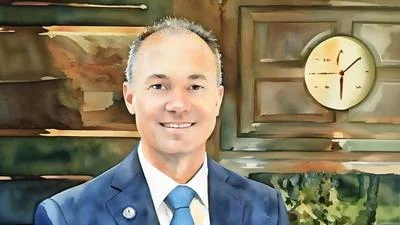Joshua Philipp, senior investigative reporter at The Epoch Times and host of The Daily Show Crossroads, is known for his incisive analysis of global politics, particularly the rising influence of Russia and China. Phillip has years of experience reporting on geopolitical issues and the ideological battles shaping the world order.
Philipp believes the stakes are high as Russia and China work to challenge the U.S. and its allies, seeking to shift the global balance of power. “They’re both working toward a world where the U.S. no longer calls the shots,” Philipp explains. “Their shared vision of a multipolar world, where they can exert dominance, is a serious threat.”
At the heart of the struggle lies the concept of Eurasian power. Philipp points to the influence of Russian philosopher Alexander Dugin, whose ideas have shaped Putin’s foreign policy. “Dugin believes that whoever controls Eurasia controls the world,” Philipp says. “That’s the driving philosophy behind Russia’s push for regional dominance.”
The Russian government's strategy for expanding influence is not only about military power but also about promoting a dangerous blend of nationalism and authoritarianism. Philipp references the rise of National Bolshevism in Russia, which combines elements of communism and fascism. “Putin and his inner circle have embraced this ideology, using it to expand Russia’s reach and challenge the West,” Philipp explains. “It’s not just about geopolitics—it’s about reshaping the political system worldwide.”
Philipp notes that Putin and his allies see this new order as a means to restore Russia’s former glory. “They want to reassert control over former Soviet territories and push Western influence out of Eurasia,” he says. “It’s about reclaiming what they believe is Russia’s rightful place at the top.”
China, meanwhile, is focused on a broader goal: to replace the U.S. as the dominant global power. Philipp warns that China’s ambitions extend beyond just military and economic power. “They want to completely reshape the global order,” he says. “Their vision is to take the place of the U.S. as the world’s economic and political leader.”
A key part of China’s strategy is its Belt and Road Initiative, which seeks to establish economic and infrastructural dominance through global trade and investment. “They’re not just trying to be a regional player anymore,” Philipp explains. “China wants to rewrite the rules of international trade and politics.”
Philipp also highlights China’s use of state capitalism to exert control. “China’s model isn’t the traditional communist system,” he says. “It’s a hybrid, where the government controls key industries, but private enterprise still plays a role. This unique blend is one reason China is rising so quickly.”
Despite their differences, Russia and China share a common goal of challenging the U.S. and Western liberal democracy. Philipp explains how the two countries have increasingly aligned their strategies. “They’re both trying to create a new world order where they’re the dominant powers,” he says. “Together, they’re presenting a formidable challenge to U.S. influence.”
Philipp warns that this alliance is more than just political. “It’s an ideological battle,” he says. “Russia and China are actively promoting an authoritarian alternative to democracy, using propaganda and economic influence to gain support from other nations.”
As Russia and China work to reshape the global system, Philipp stresses that the U.S. must be vigilant in defending its values. “This is a battle for the future,” he warns. “Will the world remain a place where democracy and individual freedoms thrive, or will we see the rise of authoritarianism?”
Philipp emphasizes that the U.S. needs to counter the growing influence of Russia and China with a clear and effective strategy. “If we’re not careful, we could lose our position as the world’s leader,” he says. “It’s up to us to ensure that the global order doesn’t fall into the hands of authoritarian regimes.”
Philipp concludes by emphasizing the importance of staying ahead of these growing threats. “Russia and China are working together to challenge the U.S. and its allies,” he says. “The decisions we make today will shape the world of tomorrow.”
–##--








